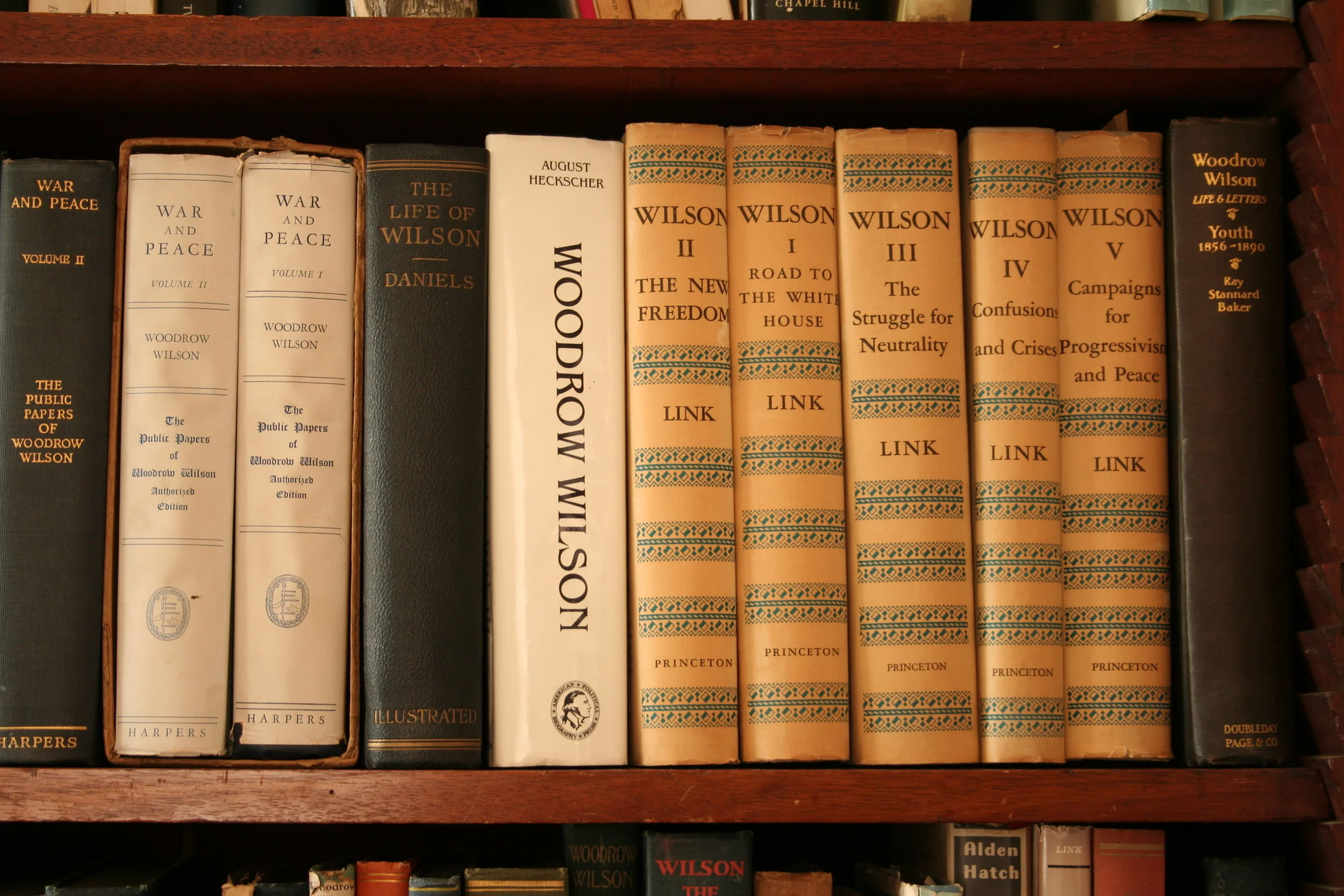Woodrow Wilson, Scholar
/When the practice of the law in Atlanta failed to interest Wilson and did not seem to offer a clear route to the political world, he decided that a PhD from the Johns Hopkins University would open new doors. He had already succeeded in publishing his senior paper at Princeton on government and several articles during his time at Charlottesville. In the fall of 1883 he gave up on the law, parted from his fiance, and moved to Baltimore to pursue a degree in hopes of becoming a professor. Wilson proved to be a star presenter and debater among the students of the seminary in history and political science, but he found the lack of interest in communication disappointing and the professors in general superficial. The German, scientific approach to studying the humanities was just too dry. So, he set about writing a grand analysis of the constitution. While he did earn a fellowship in his second year based on this work, he focused much of his efforts on a book that could get published and speak to the masses rather than impress intellectuals. Houghton-Mifflin agreed to publish Congressional Government in 1885 and it proved to be a great success. His book became the basis for his first teaching job and the Hopkins doctorate he received in 1886, despite not completing all the requirements.
Despite a growing family and a busy teaching schedule at Bryn Mawr, he did manage to finish several essays and the beginnings of a textbook on politics during his three years at the school. The State appeared in 1889, after he had moved on to a job at Wesleyan. It would prove to be a successful, long-lived textbook in the study of politics that helped to make Wilson’s career as a public speaker and intellectual.
As one of most popular professors at Princeton after 1890, Woodrow Wilson continued to write and lecture, but his work took on an even more popular bent with a new focus on magazine essays that would be collected into published books. His longer works included a popular biography of George Washington and The History of the American People which was released in twelve volumes just before he became president of Princeton University in 1902. Both appealed to mass audiences. In the following years, some of his speeches and essays would continue to be published in books, including a series of lectures on Constitutional Government. Woodrow Wilson, however, would never write the grand philosophy of politics that he had begun formulating around 1902, having turned his attention to being a leader.






